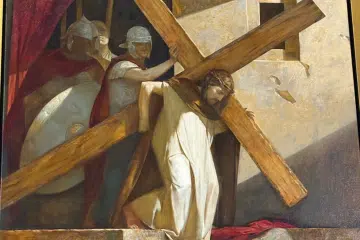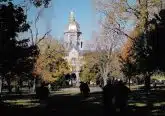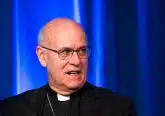Supreme Court: Wisconsin violated First Amendment in denying tax break to Catholic charity
CNA Staff, Jun 5, 2025 / 12:05 pm
The U.S. Supreme Court on Thursday unanimously held that the state of Wisconsin had violated the First Amendment when it denied a tax exemption to a Catholic charity after claiming that the group’s charitable undertakings were not “primarily” religious.
The high court said in its Thursday decision that the First Amendment “mandates government neutrality between religions” and that the state had run afoul of that principle when it refused to extend the tax break to the Catholic Charities bureau operated out of the Diocese of Superior.
The state allows organizations “operated primarily for religious purposes” to be exempt from paying into the state’s unemployment system. But the Wisconsin Labor and Industry Review Commission had claimed that the Catholic charity was not operated primarily for a religious purpose because it offers charitable services to people of all faiths and does not focus its efforts on converting the people it serves to Catholicism.
The Wisconsin Supreme Court had ruled last March against the Catholic charity. On Thursday, however, the Supreme Court reversed that order in a unanimous ruling.
“It is fundamental to our constitutional order that the government maintain ‘neutrality between religion and religion,’” Justice Sonia Sotomayor wrote in the decision. “There may be hard calls to make in policing that rule, but this is not one.”
“When the government distinguishes among religions based on theological differences in their provision of services, it imposes a denominational preference that must satisfy the highest level of judicial scrutiny,” she said.
“Because Wisconsin has transgressed that principle without the tailoring necessary to survive such scrutiny, the judgment of the Wisconsin Supreme Court is reversed,” she said.
The case “is remanded for further proceedings not inconsistent with this opinion,” Sotomayor added.
In a concurring opinion, Justice Clarence Thomas said the Catholic charity is not a “distinct organization” separate from the Diocese of Superior where it is chartered.
The charity and its affiliates “are corporate entities that the diocese has created to carry out its religious mission,” Thomas wrote.
“Both the basic principles of church autonomy and the history of religious corporations establish that religious institutions are more than the corporate entities that they form,” he said.
“It follows that the government may not use such entities as a means of regulating the internal governance of religious institutions,” he wrote.
Diocese of Superior Bishop James Powers on Thursday said the “heart of Catholic Charities’ ministry is Christ’s call to care for the least of our brothers and sisters, without condition and without exception.”
“We’re grateful the court unanimously recognized that improving the human condition by serving the poor is part of our religious exercise and has allowed us to continue serving those in need throughout our diocese and beyond,” the bishop said.













